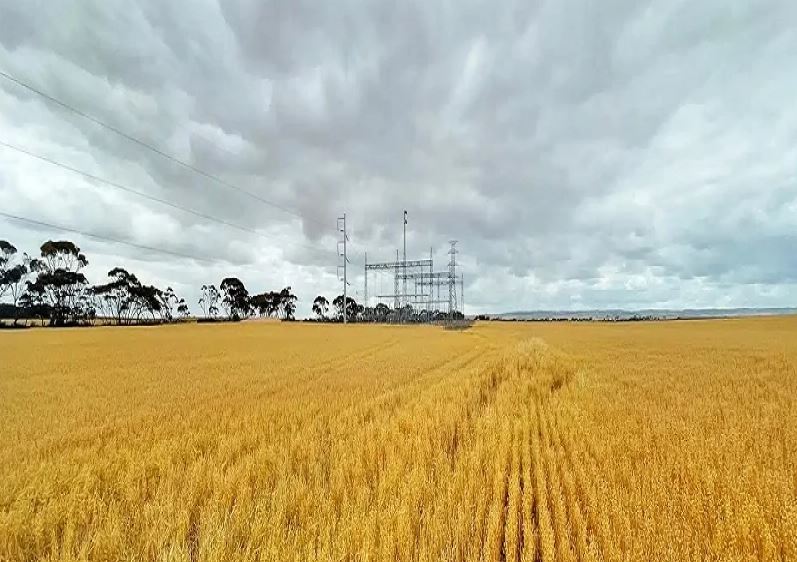French renewable energy and battery storage company Neoen said it had given notice to proceed to a EPC consortium comprising Italy-based storage specialist NHOA Energy and Spanish infrastructure development group Elecnor, signaling the start of construction for its 200 MW/400 MWh Blyth Battery project.
The 200 MW/400 MWh battery is being built next to the Blyth West substation in South Australia’s mid-north and will be linked to ElectraNet’s transmission network. NHOA Energy will be the battery storage specialist in the consortium, while Elecnor will act as balance-of-plant contractor.
In line with its develop-to-own business model, Neoen will be the long-term owner and operator of the Blyth Battery. The asset is expected to commence operating in 2025.
Neoen said the system will mainly be deployed to supply 70 MW of “renewable energy baseload” power to BHP as part of a contract to help power the miner’s Olympic Dam operations. The battery will be used to firm the production of Neoen’s 412 MW Goyder South Stage I wind farm, the first phase of the planned Goyder Renewables Zone, a hybrid wind, solar and storage project that has development approval for a total of 1200 MW of wind generation, 600 MW of solar generation and 900 MW of battery storage capacity.
The Blyth Battery, which received the support of the Australian Renewable Energy Agency’s (ARENA) Large Scale Battery Storage Funding Round, will ultimately be equipped with grid-forming inverter technology, allowing it to provide essential system strength services and inertia which have historically been provided by baseload coal and gas power plants.
“Battery storage is an essential technology in the transition to renewable energy, allowing us to smooth out variable generation and store electricity for when it’s needed,” ARENA Chief Executive Officer Darren Miller said. “Next generation grid-scale batteries will underpin this transition, with inverter technology that can maintain grid stability without fossil fuels.”
Neoen Chairman and CEO Xavier Barbaro said the Blyth Battery will also demonstrate the potential of renewable generation coupled with energy storage as the future of Australia’s baseload power supply.
“We are delighted to be building our second storage asset in South Australia, the state where we delivered the world’s first big battery back in 2017,” he said. “Blyth Battery will play an essential role in providing 24/7 energy, serving as a template for future baseload contracts for our customers, both in Australia and in our other countries.”
The Blyth Battery is Neoen’s fifth big battery in Australia, elevating the company’s total Australian assets close to 3 GW in operation or under construction with its storage portfolio approaching 1 GW.
“Neoen is now operating at the gigawatt scale in storage, making us one of the leading global players in batteries and one of the true accelerators of the energy transition,” Barbaro said.
Neoen, whose 150 MW/194 MWh Hornsdale Power Reserve in South Australia was the first grid-scale storage project in the country, also owns and operates the 300 MW/450 MWh Victorian Big Battery and is building the 100 MW/200 MWh Capital Battery in the Australian Capital Territory and the 200 MW/400 MWh Western Downs Battery in Queensland.
The company has also received state government approval to build a stand-alone 1 GW/4 GWh battery near the town of Collie in Western Australia and is pursuing plans to develop a 200 MW/400 MWh battery facility to be built near Chittering in the state’s Wheatbelt region. Neoen is also developing a 500 MW/1000 MWh battery near Wallerawang in New South Wales.
This content is protected by copyright and may not be reused. If you want to cooperate with us and would like to reuse some of our content, please contact: editors@pv-magazine.com.




By submitting this form you agree to pv magazine using your data for the purposes of publishing your comment.
Your personal data will only be disclosed or otherwise transmitted to third parties for the purposes of spam filtering or if this is necessary for technical maintenance of the website. Any other transfer to third parties will not take place unless this is justified on the basis of applicable data protection regulations or if pv magazine is legally obliged to do so.
You may revoke this consent at any time with effect for the future, in which case your personal data will be deleted immediately. Otherwise, your data will be deleted if pv magazine has processed your request or the purpose of data storage is fulfilled.
Further information on data privacy can be found in our Data Protection Policy.